Addition Practice Numbers 0–10 Worksheets for 4-Year-Olds
6 filtered results
-
From - To
Welcome to our "Addition Practice Numbers 0–10 Worksheets for 4-Year-Olds" page designed to make learning fun and effective. Tailored for early learners, these printable worksheets help children master basic addition using numbers from 0 to 10. With engaging, kid-friendly illustrations and simple exercises, your little ones will develop essential math skills while enjoying the process. Our worksheets provide ample practice to solidify their understanding and build confidence in addition. Perfect for introducing your child to the foundational concepts of math in a playful and educational way. Download now and watch your child thrive in their early math journey!
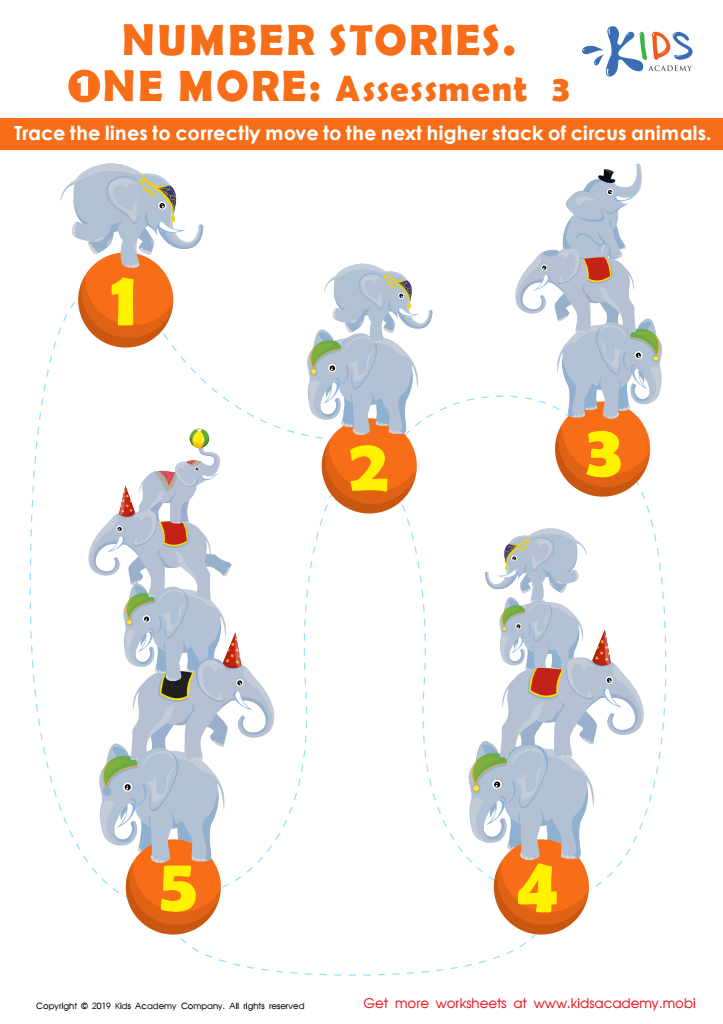

Number Stories One More: Assessment 3 Worksheet
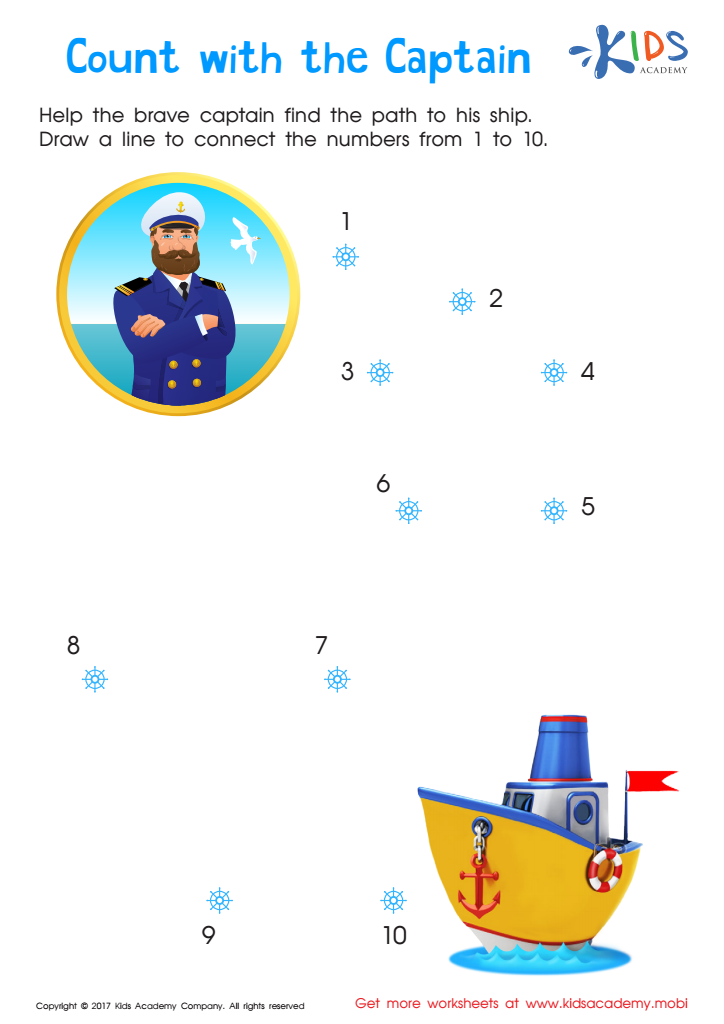

Count with the Captain Connect Dots Worksheet
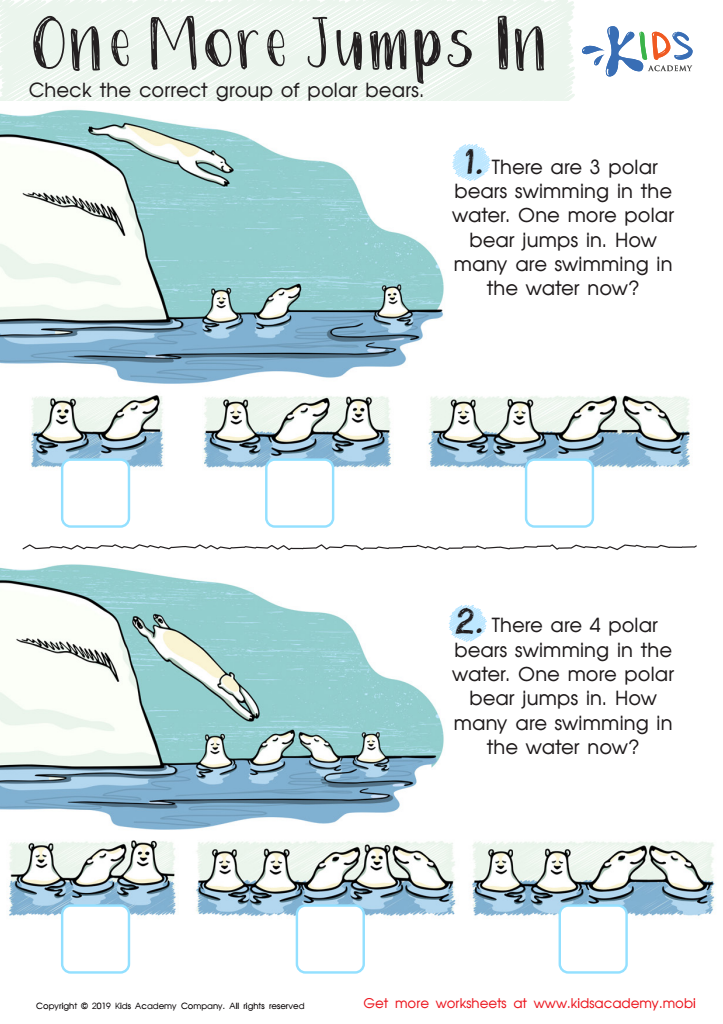

One More Jumps In Worksheet
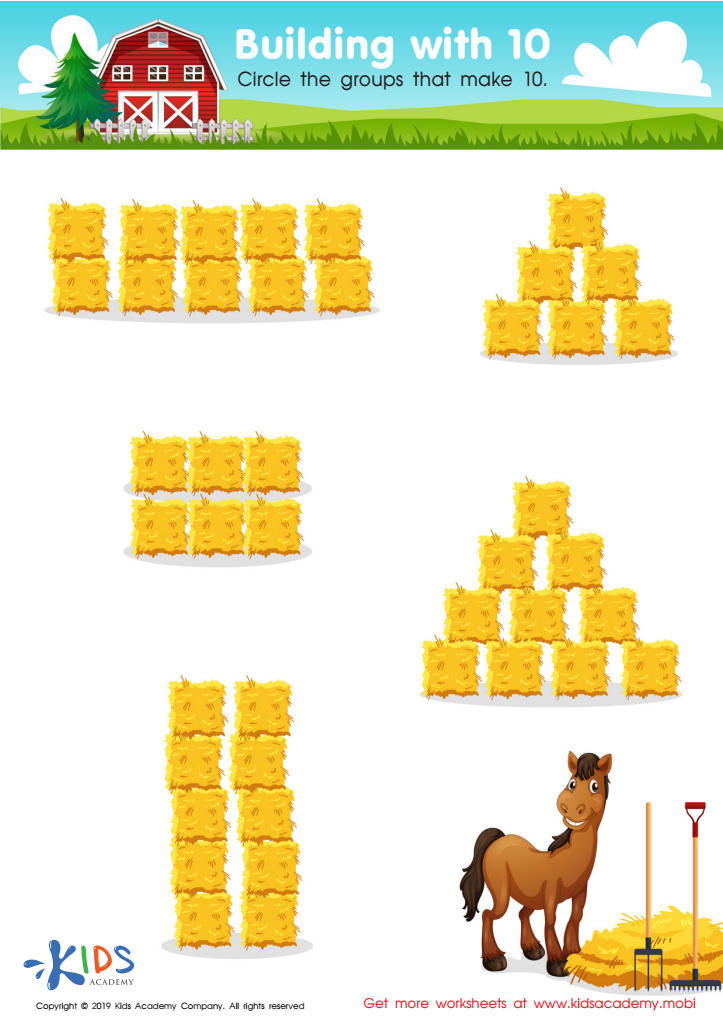

Building with 10 Worksheet
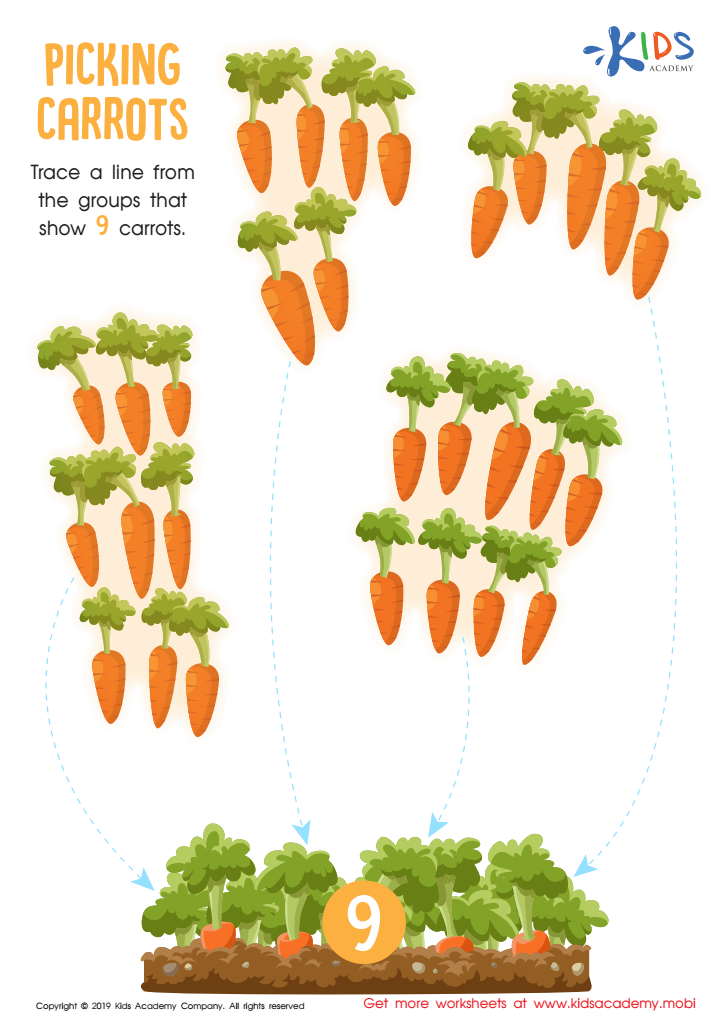

Picking Carrots Worksheet
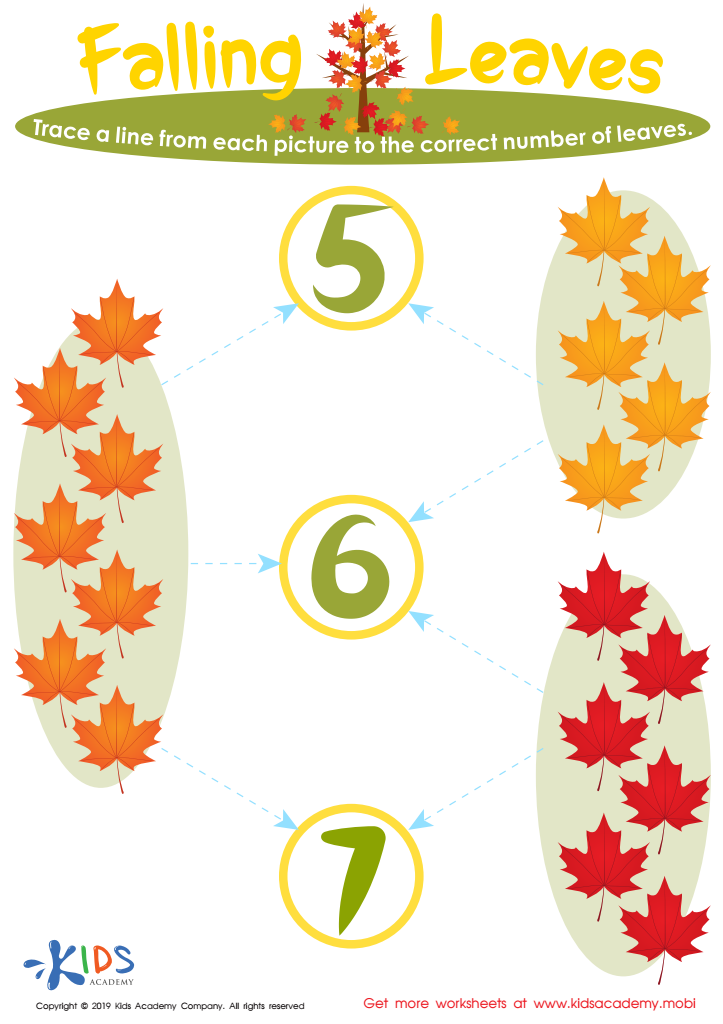

Falling Leaves Worksheet
Focusing on addition practice with numbers 0–10 for 4-year-olds is beneficial for several essential reasons. During early childhood, the brain is remarkably receptive to learning and foundational skills like basic arithmetic. Introducing addition at this stage helps lay the groundwork for future mathematical understanding.
First, engaging in addition practice enhances cognitive development. It fosters critical thinking and problem-solving abilities. Children learn to recognize patterns, understand relationships between numbers, and develop reasoning skills.
Second, early math practice builds confidence. Mastering simple addition can give children a sense of achievement, bolstering their self-esteem and encouraging a positive attitude towards learning, which is crucial for long-term educational success.
Furthermore, incorporating arithmetic into a child's routine can improve fine motor skills and concentration. Activities such as counting on fingers or using educational tools like beads require focus and precision, enhancing broader developmental milestones.
Finally, addition practice promotes emotional development through shared learning experiences. Parents and teachers who engage in these activities create a supportive environment that fosters social skills and emotional security.
In summary, teaching 4-year-olds addition with numbers 0–10 is crucial not just for academic readiness but also for holistic development, instilling confidence, cognitive skills, and emotional well-being.
 Assign to My Students
Assign to My Students
















